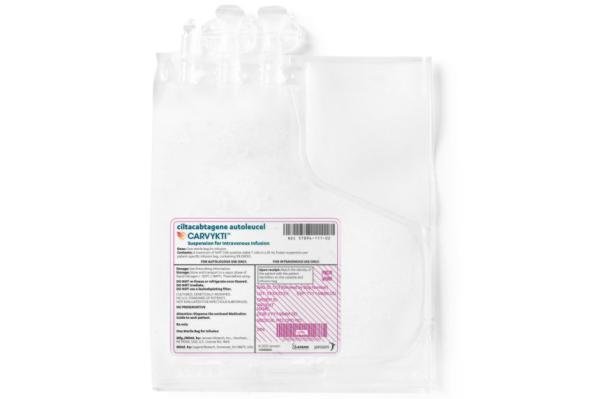Ciltacabtagene autoleucel Disease Interactions
There are 4 disease interactions with ciltacabtagene autoleucel.
Ciltacabtagene autoleucel (applies to ciltacabtagene autoleucel) infections
Major Potential Hazard, Moderate plausibility. Applicable conditions: Infection - Bacterial/Fungal/Protozoal/Viral
Ciltacabtagene autoleucel should not be administered to patients with active infection or inflammatory disorders. Severe, life-threatening, or fatal infections have occurred in patients after infusion with this drug. Patients should be monitored for signs/symptoms of infection before and after infusion of this drug and treated appropriately. Prophylactic, preemptive, and/or therapeutic antimicrobials should be administered according to standard institutional guidelines. Patients should be counseled on the importance of prevention measures. Institutional guidelines for vaccination and management of immunocompromised patients with COVID-19 should be followed.
Ciltacabtagene autoleucel (applies to ciltacabtagene autoleucel) hepatic impairment
Moderate Potential Hazard, Moderate plausibility. Applicable conditions: Liver Disease
Ciltacabtagene autoleucel has not been formally studied in patients with liver dysfunction. The pharmacokinetics of this drug were not affected by mild liver dysfunction (total bilirubin up to 1 times the upper limit of normal [1 x ULN] and AST greater than ULN or total bilirubin greater than 1 to 1.5 x ULN).
Ciltacabtagene autoleucel (applies to ciltacabtagene autoleucel) hepatitis reactivation
Moderate Potential Hazard, Moderate plausibility. Applicable conditions: Infectious Hepatitis
Treatment with ciltacabtagene autoleucel may cause hypogammaglobulinemia. Hepatitis B virus (HBV) reactivation (in some cases resulting in fulminant hepatitis, hepatic failure, and death) can occur in patients with hypogammaglobulinemia. Screening for CMV, HBV, hepatitis C virus (HCV), and HIV or any other viral infectious agents should be performed according to clinical guidelines before collection of cells for manufacturing. Antiviral therapy to prevent viral reactivation should be considered according to local institutional guidelines/clinical practice.
Ciltacabtagene autoleucel (applies to ciltacabtagene autoleucel) renal impairment
Moderate Potential Hazard, Moderate plausibility. Applicable conditions: Renal Dysfunction
Ciltacabtagene autoleucel has not been formally studied in patients with renal dysfunction. The pharmacokinetics of this drug were not affected by mild (CrCl 60 to less than 90 mL/min) or moderate (CrCl 30 to less than 60 mL/min) renal dysfunction.
Switch to professional interaction data
Ciltacabtagene autoleucel drug interactions
There are 311 drug interactions with ciltacabtagene autoleucel.
More about ciltacabtagene autoleucel
- ciltacabtagene autoleucel consumer information
- Check interactions
- Compare alternatives
- Latest FDA alerts (3)
- Side effects
- Dosage information
- During pregnancy
- Drug class: miscellaneous antineoplastics
- En español
Related treatment guides
Drug Interaction Classification
| Highly clinically significant. Avoid combinations; the risk of the interaction outweighs the benefit. | |
| Moderately clinically significant. Usually avoid combinations; use it only under special circumstances. | |
| Minimally clinically significant. Minimize risk; assess risk and consider an alternative drug, take steps to circumvent the interaction risk and/or institute a monitoring plan. | |
| No interaction information available. |
See also:
Further information
Always consult your healthcare provider to ensure the information displayed on this page applies to your personal circumstances.


